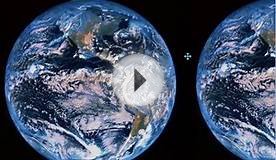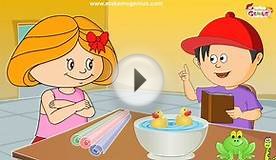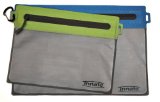Ecological footprint definition for kids
 When you use energy, you increase your carbon footprint. Photo Credit StockSolutions/iStock/Getty Images
When you use energy, you increase your carbon footprint. Photo Credit StockSolutions/iStock/Getty Images
You leave footprints when you walk in the sand, the mud and when you've got wet feet. You also leave something called a carbon footprint. You can't see your carbon footprint, but you can explain to your child how it impacts the earth and leaves a mark just like the ones in the sand and the mud.
When you use fossil fuels, like heating oil to keep your house warm or gasoline for your family's car, these things create carbon dioxide, also called CO2. Carbon dioxide is called a greenhouse gas. Many scientists believe that greenhouse gases are making the earth too warm. Your carbon footprint is the total amount of CO2 you create. A big carbon footprint is bad for the planet.
Every time you use energy that comes from fossil fuels, you create CO2 and make your carbon footprint bigger. Think of CO2 as energy waste. It's what's leftover after you use fossil fuels. You create carbon dioxide every day.
According to the Environmental Protection Agency, which is the part of the government that makes sure our environment is cared for, the electricity you use in your home creates the biggest part of your carbon footprint. Although electricity doesn't make greenhouse gases when you use it, the power plants that make the electricity do. Power plants that use coal to make electricity create the most CO2. Coal is another type of fossil fuel.
Keeping warm in the winter is the second biggest source of CO2, and it adds to your carbon footprint. Your house probably uses fossils fuels like oil, natural gas or electricity to keep you warm. The amount of CO2 your house makes depends on the type of fuel you use and how high you set your thermostat. You also add to your carbon footprint when you run the air conditioner to stay cool in the summer time.
When your family uses your car, it adds to your family's carbon footprint. That's because a car uses gasoline to run, and it produces CO2 as waste. Buses, trains and planes also produce CO2. Your trash also makes your carbon footprint bigger. The government estimates that every pound of trash you put in the garbage makes one pound greenhouses gases. That happens because, over time, trash produces CO2 and methane, another type of greenhouse gas.
The best way to make your carbon footprint smaller is to use less electricity and less fossil fuels. Be sure to turn off your computer, television and lights when you're not using them. Lower the temperature in your house during the winter and raise it in the summer. Walk and bike whenever you can instead of using the car or bus. Reduce the amount of trash you create by recycling and reusing items.



|
Innate Meta Air Traveller Combo, Small and Large Sports (Innate)
|